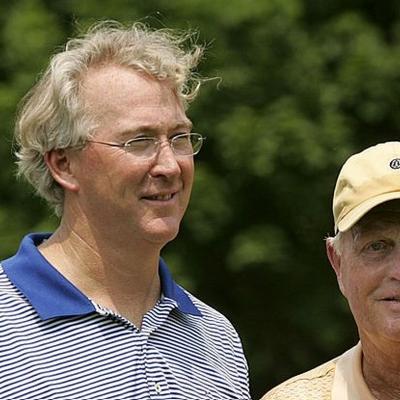Aubrey McClendon at a Glance
Aubrey McClendon’s Net Worth: A Deep Dive into the Life and Legacy
Introduction
Aubrey McClendon was a prominent figure in the American energy sector, known for his entrepreneurial spirit and transformative impact on the natural gas industry. His career, marked by both remarkable success and significant controversy, left a lasting impression on the business world. This article delves into the life, career, and ultimate fate of Aubrey McClendon, exploring his net worth, business ventures, and the events that shaped his legacy.
Early Life and Education
Born on July 14, 1959, in Oklahoma City, Oklahoma, Aubrey McClendon came from a family with deep roots in the state’s political and business landscape. He was the great-nephew of Robert S. Kerr, a former governor of Oklahoma and U.S. senator. McClendon’s upbringing in Belle Isle, Oklahoma City, instilled in him a strong work ethic and an early interest in business.
During his teenage years, McClendon demonstrated his entrepreneurial drive by starting a lawn mowing business. He excelled academically at Heritage High School, graduating as the senior class president and co-valedictorian in 1977. He then attended Duke University, where he earned a degree in history with a minor in accounting in 1981. His academic pursuits reflected an interest in the post-Civil War Reconstruction Era, hinting at a fascination with periods of significant change and development.
The Rise of Chesapeake Energy
After graduating from Duke University, McClendon began his career as an accountant. However, inspired by success stories in the energy industry, he soon transitioned into the oil and gas sector. His initial role was as a landman at Jaytex Oil and Gas, a company founded by his uncle, Aubrey M. Kerr, Jr.
In 1983, McClendon partnered with Tom L. Ward, and together they embarked on a venture into the oil and natural gas industry. In 1989, they co-founded Chesapeake Energy Corporation. McClendon served as chairman and CEO, while Ward took on the roles of president and CFO. Under McClendon’s leadership, Chesapeake Energy grew rapidly, becoming a major player in the natural gas industry.
McClendon was an early adopter of horizontal drilling and hydraulic fracturing techniques, which allowed the company to tap into unconventional reservoirs like shales and fractured carbonates. This innovative approach significantly boosted Chesapeake Energy’s growth. The company went public in 1993, and its stock experienced remarkable success, increasing in value by 274% between 1994 and 1997.
Chesapeake Energy continued to expand its operations, and McClendon amassed a considerable fortune. In 2008, he was the highest-paid CEO of all S&P 500 companies, reflecting his success and the company’s growth. However, McClendon also became known for taking calculated risks. One notable example was in 2008 when he sold a significant portion of his Chesapeake Energy shares, 94% of his stake, though this did not appear to negatively impact the company’s growth trajectory. Between 2009 and 2013, Chesapeake’s gas production increased dramatically, from 5 million to 2.5 billion cubic feet per day.
McClendon’s strategic decisions played a crucial role in the development of domestic oil and natural gas industries in the United States. Chesapeake Energy made significant discoveries of natural gas reserves, which, in turn, helped to reduce gas prices for consumers.

Hunter Martin/Getty Images
Controversies and Legal Issues
Despite his achievements, McClendon faced controversies during his tenure at Chesapeake Energy. One issue involved reports of his use of company employees for personal projects, including home repairs. Though he reimbursed the employees and the company, the practice raised ethical questions. His employment agreement, however, did permit such arrangements.
In June 2012, McClendon stepped down from his chairman role while remaining CEO, and in April 2013, he resigned as CEO. At the time of his departure, Chesapeake Energy was the second-largest producer of natural gas in the United States, trailing only ExxonMobil. After leaving Chesapeake, McClendon retained the option to invest in company wells until July 2014. He then established American Energy Partners, PL, a private oil and natural gas company in 2013.
In February 2015, Chesapeake Energy filed a lawsuit against McClendon, accusing him of misappropriating company data when he founded American Energy Partners. The parties reached a settlement that year. In March 2016, McClendon was indicted by a federal grand jury for allegedly conspiring to rig bids to buy oil and natural gas leases in Oklahoma, violating antitrust laws. He faced a potential 10-year prison sentence. McClendon denied all charges.
Personal Life and Interests
McClendon lived in Oklahoma City with his wife, Kathleen Upton Byrns. They had three children: Jack, Callie, and Will. Outside of his business interests, McClendon had a passion for wine collecting, amassing a collection of over 100,000 bottles at one point. He was also a devoted fan of basketball and was part of the investment group that brought the Seattle SuperSonics to Oklahoma City in 2008, where they became the Oklahoma City Thunder. At that time, McClendon owned a 20% stake in the franchise.
McClendon was known for his philanthropic efforts, making sizable donations to various organizations in Oklahoma City, including the Boys and Girls Club of OKC, the Oklahoma State Fair, and the Oklahoma City Ballet.
Death and the Aftermath
On March 2, 2016, just one day after being indicted, Aubrey McClendon died in a high-speed car crash. He drove his Chevy Tahoe into a concrete bridge overpass at 88 mph and was killed instantly. He was not wearing a seatbelt, and the vehicle exploded in flames upon impact. The circumstances surrounding his death raised questions and led to intense speculation.
Legacy and Impact
Aubrey McClendon left behind a complex legacy. He is widely credited with helping to transform the natural gas industry in the United States, pioneering innovative drilling techniques and contributing to the country’s energy independence. His entrepreneurial drive and vision had a profound impact on the sector.
However, his legacy is also marked by controversies and legal issues. The allegations of antitrust violations and the circumstances of his death cast a shadow over his accomplishments. Despite the controversies, McClendon’s influence on the energy industry is undeniable. His story serves as a case study of ambition, innovation, and the inherent risks and complexities of the business world.

